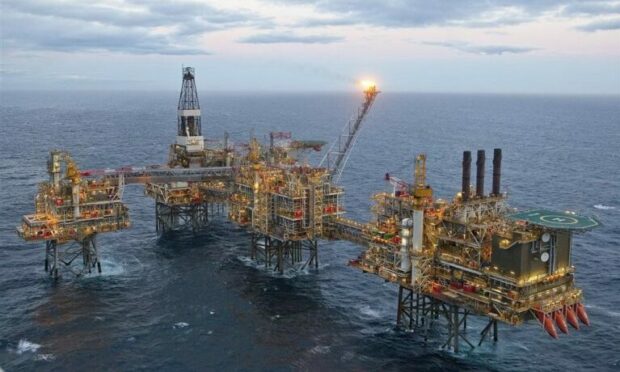Workers at a raft of North Sea installations have begun wildcat strikes in a bid to secure pay uplifts in the face of rising living costs.
Offshore workers and contractors have reportedly ceased work at 1pm on Thursday, initiating a long-mooted series of strike actions across the basin.
The total number of participants is unknown, however the Press and Journal’s sister website, Energy Voice, believes work stoppages have taken place on Buzzard, Beryl Alpha, Armada, Judy, Britannia, Forties Echo, Bravo, Alpha and Delta, Gannet, Pioneer, Jade, Everest and Brae Alpha.
The industrial action is expected to last for an initial 24-hour period, according to a letter sent on behalf of workers and seen by Energy Voice.
Among other grievances, offshore workers are demanding their pay be brought in line with that of onshore staff and have stated their dissatisfaction with the current terms of the Energy Services Agreement (ESA), a collective bargaining agreement which sets minimum pay and conditions for around 5,000 workers.
Unions said Wednesday that any unofficial action would jeopardise future pay and jobs deals, while employers warned that striking workers may face disciplinary action.
It is the second major unofficial action this year, after workers staged a “wage revolution” walkout in May.
What is the ESA?
The ESA sets minimum pay and conditions for around 5,000 workers, and was ratified in 2021 by three unions and 14 contractor companies, with further signatories joining in 2022.
The deal replaced the Offshore Contractors’ Partnership Agreement (OCPA) which had been negotiated by the Offshore Contractors’ Association (OCA) and unions since 1995, but which was dissolved at the end of 2020 after years of protracted negotiations.
It includes a rate adjustment mechanism (RAM), which automatically calculates changes to salaries using a formula based on average inflation and oil and gas prices.
The most recent calculation was completed at the beginning of the year, prior the Russian invasion of Ukraine which spurred already high commodity prices.
Under the current agreement, the next formal review of the RAM is scheduled for February 2023, however workers have demanded the calculation be brought forward to reflect both the rising cost of living and soaring oil and gas prices.
Offshore Energies UK (OEUK), which helps administrate the ESA, has been asked for comment.
Operators have been contacted to confirm whether any impact to production or operations is expected.
